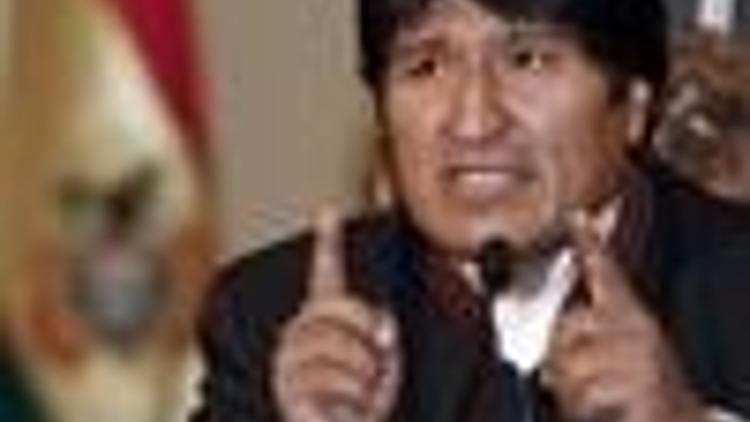Bolivian president, foes dig in as unrest worsens
Güncelleme Tarihi:

Bolivia was Sunday facing worsening strife after President Evo Morales and his political foes exchanged ultimatums and blame over unrest that has already claimed at least 17 lives.
The crisis has taken on international proportions, with the
The unrest was the biggest challenge Morales has faced since becoming
His attempts to railroad through socialist reforms to redistribute land and natural gas revenues to the country’s six-million-strong indigenous majority have been met with fierce resistance from conservative governors in five of
They are opposed to his call for a December referendum to decide a new constitution enshrining his changes, and want more control over revenues from lucrative gas fields. They are pushing for autonomy.
Chief opposition figure Ruben Costas, the governor of the eastern state of Santa Cruz, told reporters overnight that prospects of a negotiated solution to the unrest were dim.
"We warn that if there is just one more death or person wounded, any possibility of dialogue will be broken," he said.
Morales, for his part, told union leaders in central
"We have always cried fatherland or death. If we don’t emerge victorious, we have to die for the country and the Bolivian people," said the left-wing leader, who took power as
His government accused the opposition governor of the northern state of Pando of being responsible for most of the deaths that occurred there since Tuesday.
Interior Minister Alfredo Rada said Governor Leopoldo Fernandez was suspected of being behind a "massacre" of 16 rural workers by anti-government militants, some of whom were said to be armed state government employees.
A local farmer’s leader, Shirley Segovia, told Erbol radio that the victims "were killed like pigs, with machine guns, with rifles, with shotguns, with revolvers."
Unconfirmed reports said Fernandez had fled to neighboring
Morales decreed martial law for the state and sent 100 troops by airplane to the principal city of
Information coming out of Cobija, Pando’s principal city, was difficult to verify because there were no flights there, and roadblocks in much of eastern
As the violence dragged on,
Photo: AFP

